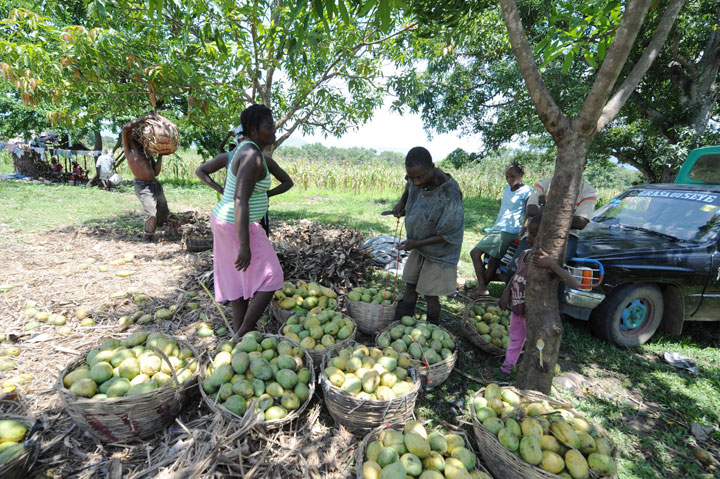PORT-AU-PRINCE, Haiti – Coffee and mango fields that help form the backbone of Haiti’s agricultural economy are at risk of withering if the country does not take steps soon to prepare for climate change effects, experts at an environmental conference said Thursday.

The warning comes as Haiti pushes to strengthen its agriculture industry and boost coffee and mango exports after a devastating 2010 earthquake followed by a series of punishing droughts and storms that led to multimillion-dollar crop losses.
READ MORE: Arctic rangers seek better equipment to deal with climate change
Agriculture Minister Thomas Jacques said at the conference in Port-au-Prince that the government is working with various organizations to monitor climate change effects in Haiti and plans to unveil details of a carbon-pricing program at the United Nations climate summit in September.
“In Haiti, climate change is felt more acutely given our geographic location and the fragility of our various ecosystems,” Jacques said.
The conference was organized in part by the Colombia-based International Center for Tropical Agriculture and the Maryland-based non-profit Catholic Relief Services, which has been working with farmers in Haiti.
Mangoes have become increasingly important to Haiti’s economy, with the fruit generating an estimated $11 million in 2011 as one of the country’s top exports, according to a recent report by the International Center for Tropical Agriculture.
READ MORE: Global warming already dangerous, risks being irreversible, says UN report
Coffee exports, however, have declined from $7 million to $1 million, although the demand for high-end Haitian coffee has grown, the report found.
Experts say rising temperatures and limited or erratic rainfall could lead to a decrease in coffee and mango production if farmers don’t diversify their crops and embrace drought-tolerant varieties, among other things.
“If certain measures aren’t put into place to help farmers make changes to the way they farm, there could be serious consequences down the road,” Jeff McIntosh, deputy director for Catholic Relief Services in Haiti, said in a phone interview.
Haiti’s agriculture sector represents about 25 per cent of the country’s GDP, and nearly 58 per cent of the labour force is employed in agriculture, according to the report.


Comments